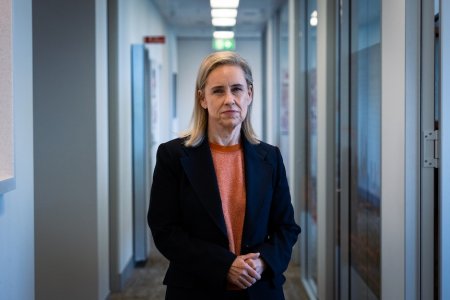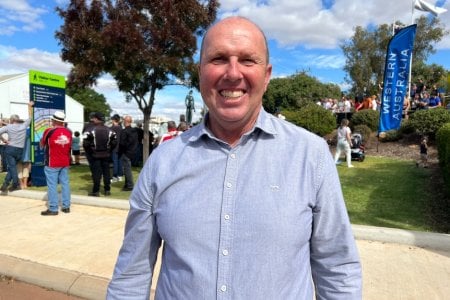Lack of aged care beds, home support in keeping the elderly in hospital in WA
By
ABC News
- Replies 0
Each day around 200 hospital beds in Western Australia are taken up by people who do not need to be there, according to state budget estimates released last month.
It is the result of a lack of aged care vacancies and at-home support for older people, particularly in regional areas.
The issue has added pressure to the state's already stretched health system, which experienced its worst month on record for regional ambulance ramping in May.
Patients are being admitted to hospital for genuine health issues, but to be released into an at-home care model, they may have to wait an extra 10 days in hospital, while those waiting for a residential aged care place face an additional 16-day wait on average.
WA's Shadow Health Minister Libby Mettam said not enough was being done to address the issue, and patients should not be staying in hospital longer than medically required.
"It is not good for their dignity, their welfare," she said.
"It also has an impact on the rest of the hospital system, and it all comes as an unnecessary cost to taxpayers."
An average hospital bed costs $2,370 per day compared with an aged care placement of about $350 a day.
A 2022–23 report from the state's auditor general, Management of Long Stay Patients in Public Hospitals, highlighted concerns for the patients themselves, the impact on the health system, and a lack of data in relation to the ongoing issue.
At the end of March, federal Department of Health, Disability and Ageing figures showed there were 87,597 people nationally waiting for home care packages.
The state government has committed to a $100 million low-interest loan scheme to help aged care providers deliver up to 500 additional concessional aged care beds.
The scheme is expected to be rolled out next financial year.
Ms McGurk said the state government's Time to Think program also provided 42 beds at different aged care facilities in Perth for those leaving hospital, but it only operated in Perth.
In Northam, about 95 kilometres north-east of Perth, aged care providers estimate there is an undersupply of nearly 200 residential aged care beds, predicted to reach 350 beds by 2032, including 160 retirement accommodation places.
The town has two aged care facilities with a total of 80 beds, built in the 1970s and 80s and privately run by Juniper Aged Care.
The Shire of Northam said it was aware of 50 aged care clients who had relocated to Perth because their needs could no longer be met by the existing facilities, which were in vital need of upgrades or expansion.
Northam is home to more than 12,000 people, and the town's services also cater to the wider Wheatbelt region, according to Shire President Chris Antonio.
"The ageing population, particularly our farmers, want to stay close to where they are from," he said.
"It is close enough that they can still go back to the farm or the town that they grew up in without having to move to the city.
"They don't want to live in the city and, by not having aged care beds, we aren't making that possible for them."
Cr Antonio said the local government was asking for state and federal government support.
"What we're doing is we're ripping out the older population from their community because we've got a shortage of beds," he said.
Cr Antonio said the shire estimated private providers would need an investment in excess of $10 million to provide the level of aged care the region needed.
He said Killara Adult Day Care and Respite Centre, which provided temporary care to aged care clients living at home, had taken on four clients in the past month from Northam Regional Hospital to reduce the strain on the health system.
"If I'm an older person and I'm having to make decisions because I'm getting frailer, the absolute preference is to maintain my independence in my home, close to my community, close to my family, and getting the supports in the home," he said.
In a statement, federal Aged Care Minister Stuart McRae said the government was investing almost $1 billion through the Aged Care Capital Assistance Program to help providers and aged care facilities develop residential aged care homes across Australia, especially within rural and regional areas.
Written by Rosemary Murphy and Eliza Bidstrup, ABC News.
It is the result of a lack of aged care vacancies and at-home support for older people, particularly in regional areas.
The issue has added pressure to the state's already stretched health system, which experienced its worst month on record for regional ambulance ramping in May.
Patients are being admitted to hospital for genuine health issues, but to be released into an at-home care model, they may have to wait an extra 10 days in hospital, while those waiting for a residential aged care place face an additional 16-day wait on average.
WA's Shadow Health Minister Libby Mettam said not enough was being done to address the issue, and patients should not be staying in hospital longer than medically required.
"It is not good for their dignity, their welfare," she said.
"It also has an impact on the rest of the hospital system, and it all comes as an unnecessary cost to taxpayers."
An average hospital bed costs $2,370 per day compared with an aged care placement of about $350 a day.
A 2022–23 report from the state's auditor general, Management of Long Stay Patients in Public Hospitals, highlighted concerns for the patients themselves, the impact on the health system, and a lack of data in relation to the ongoing issue.
Lack of beds
WA Minister for Seniors and Aged Care Simone McGurk said aged care was a federal government responsibility, and there were not enough beds available across the country."There are not enough concessional beds, so those people who are least able to pay are usually in a very difficult position and are more likely to end up in hospital," she said.
At the end of March, federal Department of Health, Disability and Ageing figures showed there were 87,597 people nationally waiting for home care packages.
The state government has committed to a $100 million low-interest loan scheme to help aged care providers deliver up to 500 additional concessional aged care beds.
The scheme is expected to be rolled out next financial year.
Ms McGurk said the state government's Time to Think program also provided 42 beds at different aged care facilities in Perth for those leaving hospital, but it only operated in Perth.
Moving away from home
Ms Mettam said the scarcity of residential aged care options in regional areas was of great concern.In Northam, about 95 kilometres north-east of Perth, aged care providers estimate there is an undersupply of nearly 200 residential aged care beds, predicted to reach 350 beds by 2032, including 160 retirement accommodation places.
The town has two aged care facilities with a total of 80 beds, built in the 1970s and 80s and privately run by Juniper Aged Care.
The Shire of Northam said it was aware of 50 aged care clients who had relocated to Perth because their needs could no longer be met by the existing facilities, which were in vital need of upgrades or expansion.
Northam is home to more than 12,000 people, and the town's services also cater to the wider Wheatbelt region, according to Shire President Chris Antonio.
"The ageing population, particularly our farmers, want to stay close to where they are from," he said.
"It is close enough that they can still go back to the farm or the town that they grew up in without having to move to the city.
"They don't want to live in the city and, by not having aged care beds, we aren't making that possible for them."
Cr Antonio said the local government was asking for state and federal government support.
"What we're doing is we're ripping out the older population from their community because we've got a shortage of beds," he said.
Cr Antonio said the shire estimated private providers would need an investment in excess of $10 million to provide the level of aged care the region needed.
He said Killara Adult Day Care and Respite Centre, which provided temporary care to aged care clients living at home, had taken on four clients in the past month from Northam Regional Hospital to reduce the strain on the health system.
Ageing at home
Juniper Aged Care chief executive Russell Bricknell said without additional Commonwealth funding for home care packages, those in need would "pass away before they get any support"."If I'm an older person and I'm having to make decisions because I'm getting frailer, the absolute preference is to maintain my independence in my home, close to my community, close to my family, and getting the supports in the home," he said.
In a statement, federal Aged Care Minister Stuart McRae said the government was investing almost $1 billion through the Aged Care Capital Assistance Program to help providers and aged care facilities develop residential aged care homes across Australia, especially within rural and regional areas.
Written by Rosemary Murphy and Eliza Bidstrup, ABC News.











